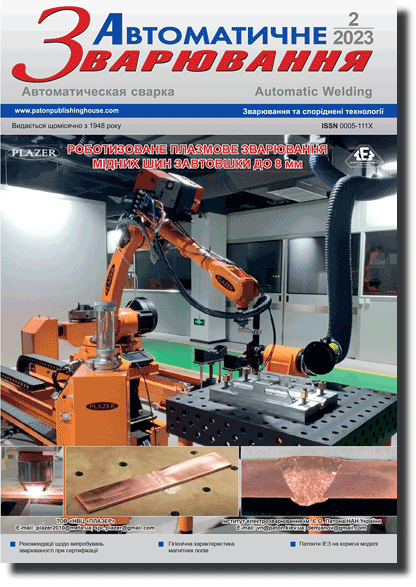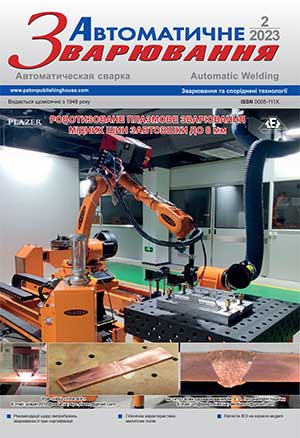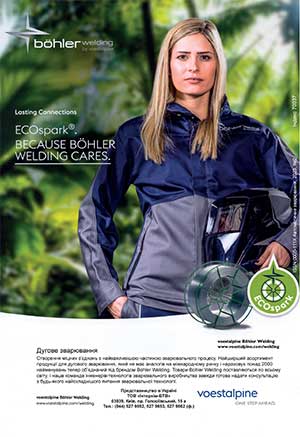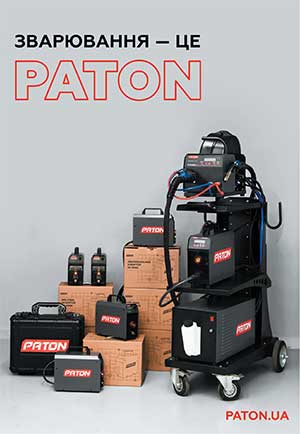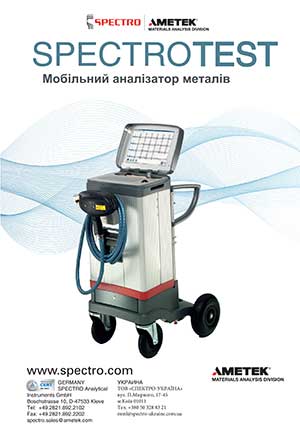| 2023 №02 (01) |
DOI of Article 10.37434/as2023.02.02 |
2023 №02 (03) |
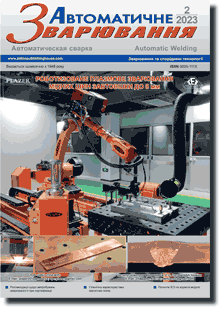
"Avtomatychne Zvaryuvannya" (Automatic Welding), #2, 2023, pp. 10-17
Strength and structure of butt, overlap and fillet joints of АМg6М alloy produced by friction stir welding
A.G. Poklyatskyi, S.I. Motrunich, V.E. Fedorchuk, I.M. Klochkov
E.O. Paton Electric Welding Institute of the NAS of Ukraine. 11 Kazymyr Malevych Str., 03150, Kyiv, Ukraine. E-mail: office@paton.kiev.uaThe paper deals with the results of studying the structure and strength of butt, overlap and fillet joints of AMg6M aluminium alloy, produced by friction stir welding (FSW). It is shown that a weld nugget with fine-crystalline structure forms as a result of intensive plastic deformation. The size of grains, which are of practically globular shape, does not exceed 4…5 ~m, and that of dispersed phase precipitates – ≤ 1 ~m. In the zone of thermomechanical impact, in addition to fine grains, somewhat larger elongated grains (6…7 мкм) form, which are oriented along the direction of plasticized metal displacement by the tool working surfaces. Here, in the heat-affected zone, where the metal did not undergo any deformational impact, the maximum size of its grains is on the level of 10…15 ~m. The strength limit of samples of butt joints and fillet joints, produced by making butt and overlap-butt welds, is on the level of 335 – 350 MPa at their static tension, and it practically does not depend on the welded sheet location either from the advancing side or from the retreating side, or on the weld orientation relative to their flanging direction. Here, the butt joint samples fail mainly through the base metal or the boundary of zones of thermomechanical and thermal impact. Samples of fillet joints produced by overlap-butt welds, fail in the zone of weld-to-base metal transition in the thermomechanical impact zone, and those produced by butt welds fail also through the base metal. 16 Ref., 1 Tabl., 10 Fig.
Keywords: friction stir welding, AMg6M aluminium alloy, fillet joints, strength, butt joints, overlap joints
Received: 14.02.2023
References
1. Ishchenko, A.Ya., Labur, T.M., Bernadsky, V.M. et al. (2006) Aluminium and its alloys in modern welded structures. Kyiv, Ekotekhnologiya [in Russian].2. Poklyatsky, A.G., Grinyuk, A.A. (2001) Effect of parameters of asymmetric and modulated currents on quality of aluminium alloy welded joints. The Paton Welding J., 7, 33-36.
3. Poklyatsky, A.G., Ishchenko, A.Ya., Grinyuk, A.A. et al. (2002) Non-consumable electrode argon-arc welding of aluminium alloys with arc oscillations. Ibid, 2, 18-22.
4. Shiganov, I.N., Shakhov, S.V., Kholopov, A.A. (2012). Laser welding of aluminum alloys for aviation. Engineering Journal: Science and Innovations, 6, 34-50.
5. Defalco, J. (2006) Friction Stir Welding vs. Fusion Welding. Welding J., 3, 42-44.
6. Pietras, A., Zadroga, L., Lomozik, M. (2004) Characteristics of welds formed by pressure welding incorporating stirring of the weld material (FSW). Welding International, 1, 5-10. https://doi.org/10.1533/wint.2004.3215
7. Ishchenko, A.Ya., Podielnikov, S.V., Poklyatsky, A.G. (2007) Friction stir welding of aluminium alloys (Review). The Paton Welding J., 11, 25-30.
8. Chionopoulos, S.K., Sarafoglou, CH.I., Pantelis, D.I. et al. (2008) Effect of Tool Pin and Welding Parameters on Friction Welded (FSW) Marine Aluminium Alloys. Proceedings of the 3rd International Conference on Manufacturing Enjineering (ICMEN), 1-3 October 2008, Chalkidiki, Greece, 7-15.
9. Shibayanagi, T. (2007) Microstructural aspects in friction stir welding. Journal of Japan Institute of Light Metals, 9, 416-423. https://doi.org/10.2464/jilm.57.416
10. Markashova, L.I., Poklyatsky, A.G., Kushnaryova, O.S. (2013) Influence of welding processes on the structure and mechanical properties of welded joints of aluminium alloy 1460. The Paton Welding J., 3, 18-23.
11. Saad, A.K, Shibayanagi, T. (2007) Microstructure and Mechanical Properties of Friction Stir Welded Similar and Dissimilar Joints of Al and Mg Alloys. Transaction of JWRT, 1, 27-40.
12. Lin, H., Fujii, H., Maeda, M. et al. (2003) Mechanical properties of friction stir welded joints of 1050-H24 aluminium alloy. Science and Technology of Welding and Joining, 6, 450-454. https://doi.org/10.1179/136217103225005598
13. Mori, H., Noda, M., Tominaga, T. (2007) Current state on application of friction stir welding for rolling stock. Journal of Japan Institute of Light Metals, 11, 506-510. https://doi.org/10.2464/jilm.57.506
14. Kumagai, M., Tanaka, S. (2001) Application of Friction Stir Welding to Welded Construction of Aluminium Alloys. Journal of Light Metal Welding and Construction, 1, 22-28.
15. Arbegast, W.J. (2006) Friction Stir Welding After a Decade of Development. Welding J., 3, 28-35.
16. Ding, J., Carter, R., Lawless, K. et al. (2006) Friction Stir Welding Flies High at NASA. Ibid, 3, 54-59.
Advertising in this issue:
The cost of subscription/purchase order journals or individual articles
| Journal/Currency | Annual Set | 1 issue printed |
1 issue |
one article |
| TPWJ/USD | 384 $ | 32 $ | 26 $ | 13 $ |
| TPWJ/EUR | 348 € | 29 € | 24 € | 12 € |
| TPWJ/UAH | 7200 UAH | 600 UAH | 600 UAH | 280 UAH |
| AS/UAH | 1800 UAH | 300 UAH | 300 UAH | 150 UAH |
| AS/USD | 192 $ | 32 $ | 26 $ | 13 $ |
| AS/EUR | 180 € | 30 € | 25 € | 12 € |
| SEM/UAH | 1200 UAH | 300 UAH | 300 UAH | 150 UAH |
| SEM/USD | 128 $ | 32 $ | 26 $ | 13 $ |
| SEM/EUR | 120 € | 30 € | 25 € | 12 € |
| TDNK/UAH | 1200 UAH | 300 UAH | 300 UAH | 150 UAH |
| TDNK/USD | 128 $ | 32 $ | 26 $ | 13 $ |
| TDNK/EUR | 120 € | 30 € | 25 € | 15 € |
AS = «Automatic Welding» - 6 issues per year;
TPWJ = «PATON WELDING JOURNAL» - 12 issues per year;
SEM = «Electrometallurgy Today» - 4 issues per year;
TDNK = «Technical Diagnostics and Non-Destructive Testing» - 4 issues per year.





